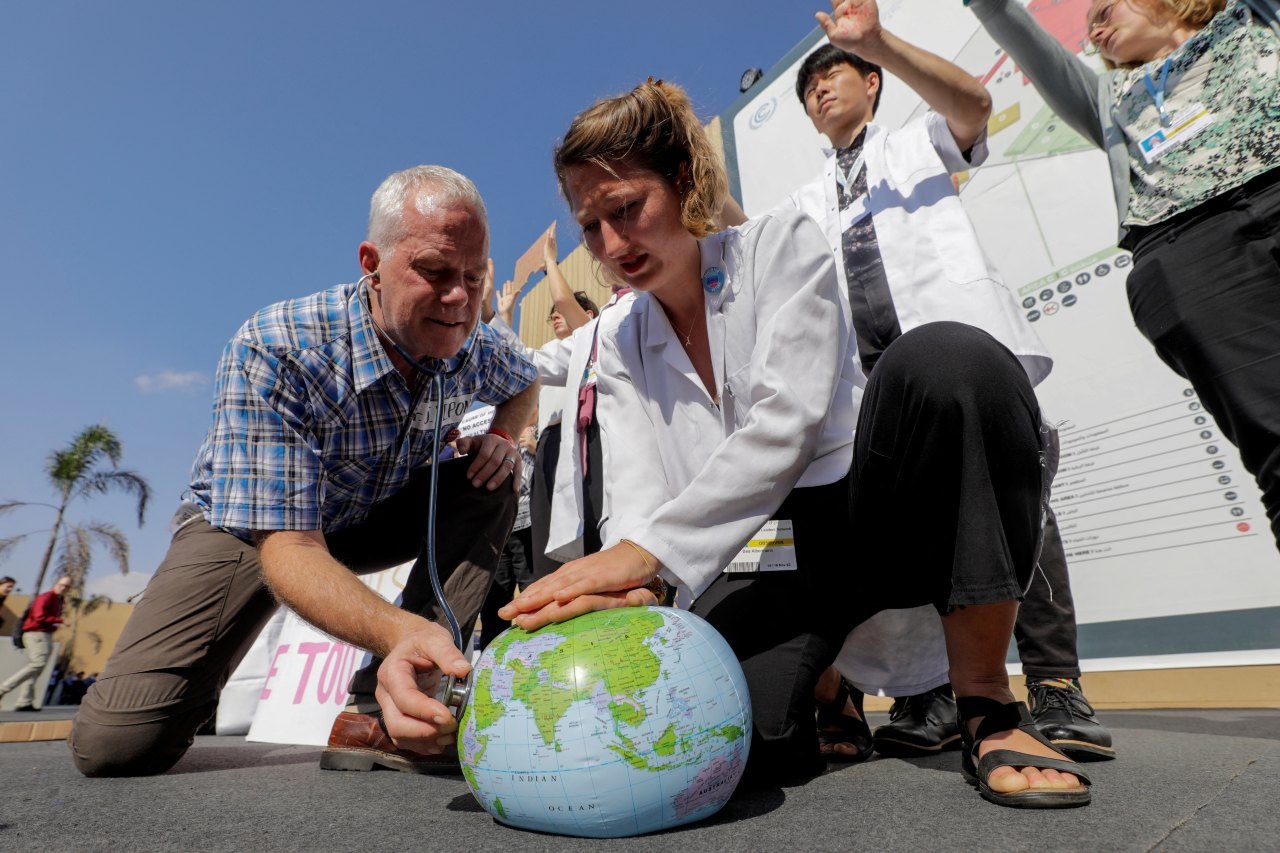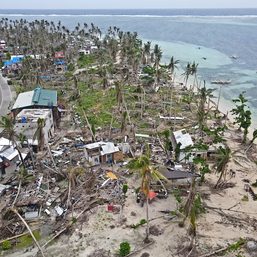SUMMARY
This is AI generated summarization, which may have errors. For context, always refer to the full article.

SHARM EL-SHEIKH, Egypt – Countries were far from agreeing the contours of a climate deal at the COP27 summit in Egypt on Wednesday, November 16, with the host country urging negotiators to resolve their differences ahead of a weekend deadline.
The outcome of the conference in Sharm el-Sheikh is a test of world resolve to tackle global warming as other crises, ranging from Russia’s war in Ukraine to consumer inflation, distract international attention.
Leaders from the G20 group of developed nations issued a declaration on Wednesday expressing support for a global goal to limit warming to 1.5°C, phase out coal, and speed up climate finance.
And delegates at COP27 got a lift from a speech by Brazilian President-elect Luiz Inacio Lula da Silva, who vowed to re-engage the rainforest nation with international efforts to fight climate change.
But inside the negotiating rooms in Egypt, deep divisions remained, according to Egypt’s COP27 presidency special representative Wael Aboulmagd.
“I think we have a larger than normal number of lingering issues,” he said. “We would have hoped under the current circumstances to see more willingness to cooperate and accommodate than we are seeing.”
An official close to the talks said divisions remained over issues including whether rich nations should set up a fund to cover irreparable damage being wrought by climate change, language addressing fossil fuels use, and whether 1.5ºC should remain the explicit targeted limit for planetary warming.
“There is concern about how we’re to get to the end, and there is concern because we’re talking about the biggest problem facing humanity,” the official said, asking not to be named.
US Special Climate Envoy John Kerry had said on Saturday, November 12, that a few countries were resisting mention of the 1.5ºC goal in the official text of the COP27 summit, but did not name them.
Scientists say keeping average global temperature rise to 1.5ºC is needed to avert the worst effects of climate change. Temperatures have already increased by 1.1ºC.
A European Union official said the G20 support for 1.5ºC could increase the chances that negotiators in Egypt would also lock in the target. But the official warned “it’s only safe when 1.5 is anchored in the cover decision,” referring to what will form the core political deal from the summit. (LIVE UPDATES: UN Climate Change Conference (COP27) in Egypt)
Brazil is back
Lula, making his first international trip as Brazil’s new president-elect, was greeted like a rock star by roaring crowds as he addressed the summit.
“I’m here today to say that Brazil is ready to come back,” Lula said. He also offered to host the COP30 talks in 2025 in the Amazon rainforest.
But he criticized global leaders for failing to prioritize climate change while spending trillions of dollars on war.
“The planet is at every moment alerting us that we need one another to survive,” he said. “However, we ignore these alerts. We spend trillions of dollars on wars that bring destruction and death, while 900 million people in the world don’t have something to eat.”
Lula won the election last month against right-wing President Jair Bolsonaro, who presided over mounting destruction of the Amazon rainforest and refused to hold the 2019 climate summit originally planned for Brazil.
The run-up to this week’s G20 talks in Bali also saw an agreement Monday, November 14, between the world’s top two biggest greenhouse gas emitters, the United States and China, to resume climate cooperation after a hiatus triggered by diplomatic tensions over Taiwan.
And a coalition of countries announced at G20 it would mobilize $20 billion of public and private finance to help Indonesia shut coal power plants, following a similar deal last year for South Africa.
The G20 declaration recognized the need to phase down use of unabated coal and phase out “inefficient” fossil fuel subsidies. It also said industrialized countries should make progress on climate finance – essentially restating goals made at previous summits.
‘Missed opportunity’
India, the world’s second biggest buyer of coal, has said during the COP27 talks that it wants countries to agree to phase down all fossil fuels, rather than the narrower deal to phase down coal that was agreed at COP26 last year.
That proposal would benefit India, which has relatively small oil and gas reserves, by reducing the focus on its coal use, but has also drawn support from the European Union, which views the idea as a step up in ambition.
But it is a sore point for African and Middle Eastern countries keen to develop their oil and natural gas resources. Saudi Arabia has said it wants to avoid a deal that would “demonize” oil and gas.
Avinash Persaud, special envoy on climate finance to Prime Minister Mia Motley of Barbados, meanwhile, told Reuters the G20 declaration missed the mark on finance.
“Unfunded ambition gets us nowhere fast,” Persaud said, adding he wanted G20 countries to unlock more lending from multilateral development banks they control to help climate-vulnerable countries.
“They have missed the opportunity to deliver on that today, and we are running out of time.”
Negotiations remained thorny around the issue of “loss and damage,” or how to help countries hit by huge economic loss as a result of climate-driven disasters, with countries divided over whether and when to set up a fund and who should pay into it.
But on Wednesday, negotiators notched a small victory by agreeing to set up the so-called Santiago Network, a body to offer technical assistance to countries that need help rebuilding after disasters. Wealthy countries continue to resist agreeing this year to establishing a dedicated loss and damage fund. – Rappler.com
Add a comment
How does this make you feel?









![[OPINION] Grading Marcos admin’s performance on the climate agenda](https://www.rappler.com/tachyon/2024/06/grading-marcos-performance-climate-agenda-june-25-2025.jpg?resize=257%2C257&crop=441px%2C0px%2C1080px%2C1080px)
![[OPINION] No room for ‘business as usual’ in era of climate emergency](https://www.rappler.com/tachyon/2024/06/no-room-business-as-usual-climate-change-june-25-2024.jpg?resize=257%2C257&crop_strategy=attention)
![[OPINION] Climate finance: A call to action for the Philippines](https://www.rappler.com/tachyon/2024/05/tl-climate-finance.jpg?resize=257%2C257&crop=458px%2C0px%2C1080px%2C1080px)







There are no comments yet. Add your comment to start the conversation.